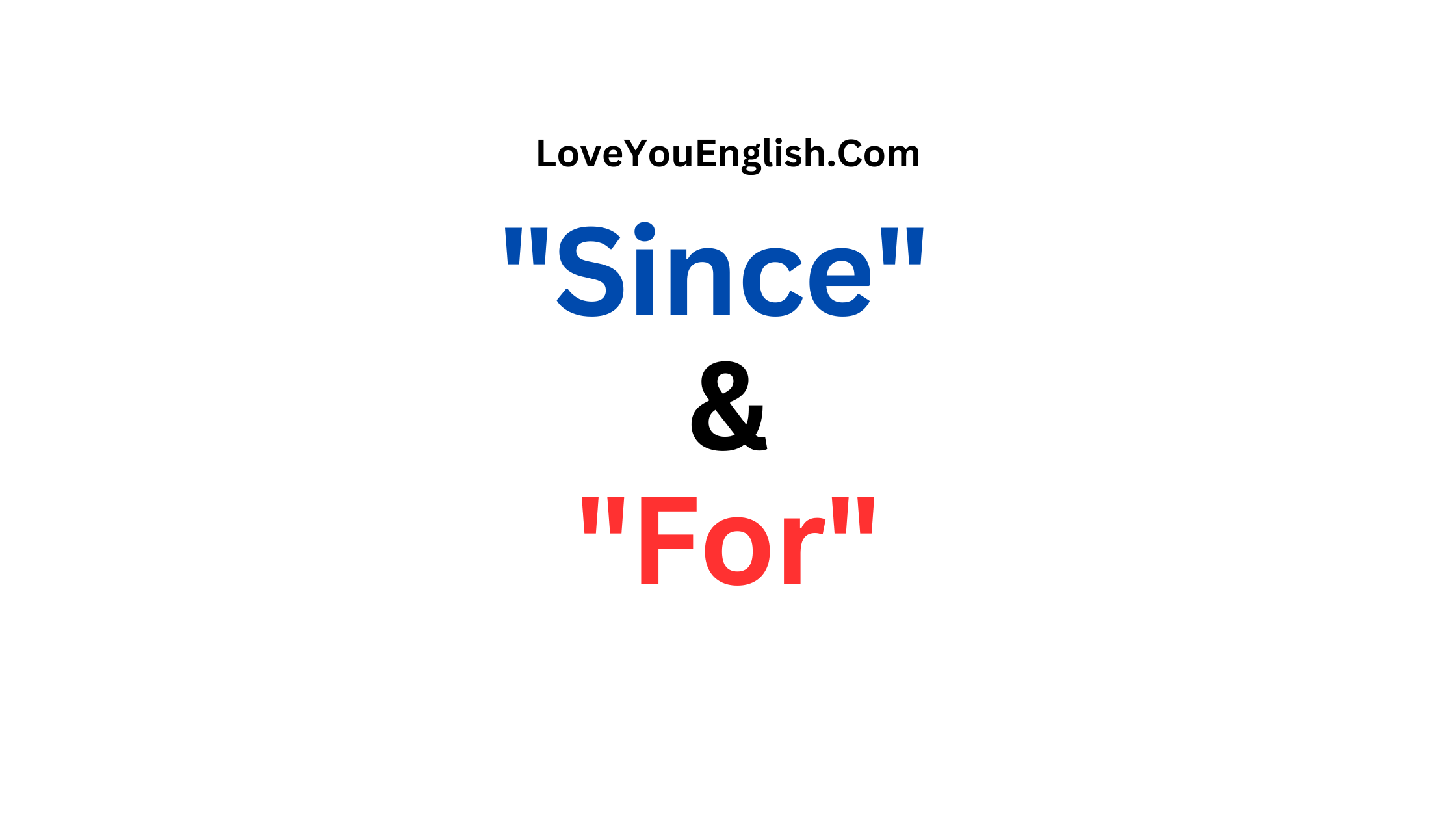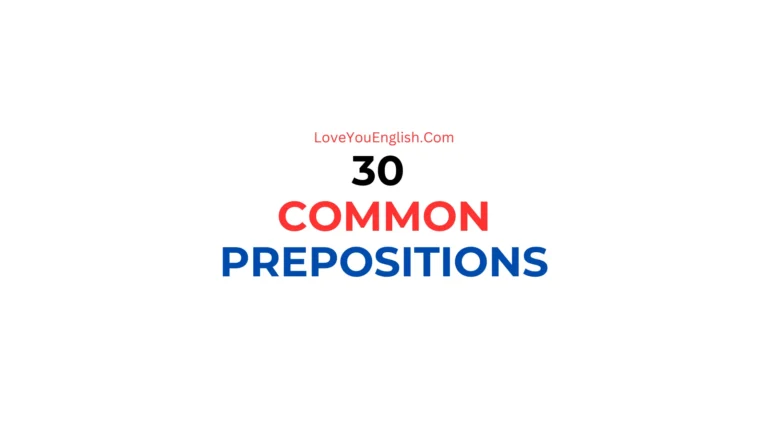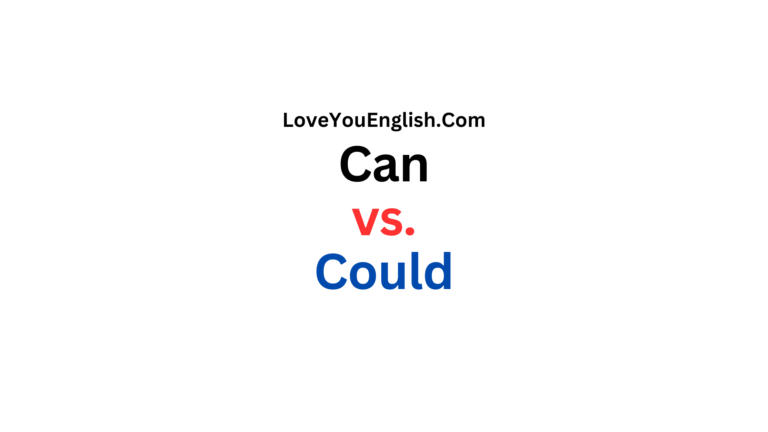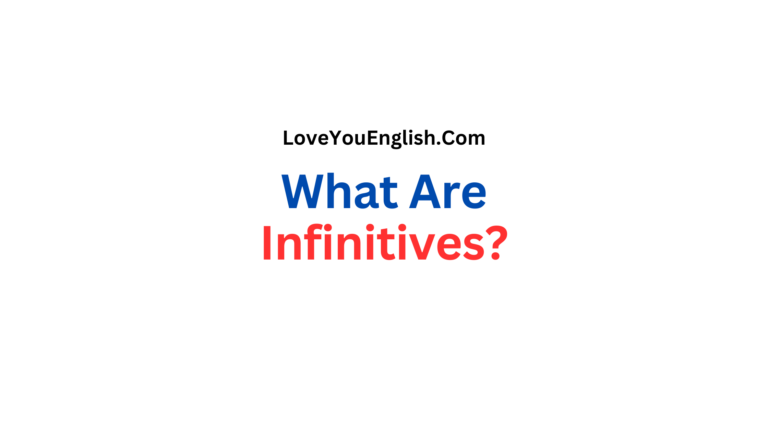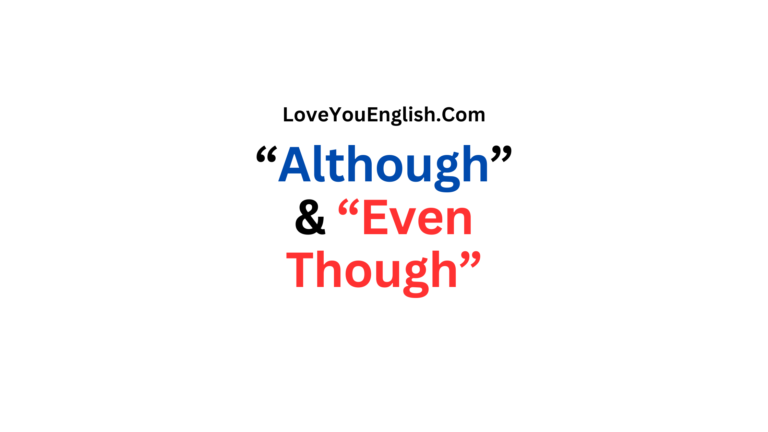Understanding the difference between since and for is essential for speaking and writing correct English, especially when talking about time.
Both words are commonly used with perfect tenses, but they are used in different ways and cannot be used interchangeably.
Since is used to point to a specific starting time (a point in time), while for is used to talk about a duration of time (a period).
Many English learners confuse these two words, which can lead to grammatical mistakes. Learning when and how to use since and for correctly will help you express time more clearly, sound more natural, and improve your overall fluency in English.
This topic is especially useful for students, competitive exams, and everyday conversations.
What Do “Since” and “For” Mean?
Both “since” and “for” are used when we talk about time, but they have different jobs in a sentence.
“Since”
“Since” tells us about a specific starting time. It answers the question “From what point?” Think of “since” as pointing to a date on a calendar or a time on a clock.
Examples:
- I have lived in this town since 2015.
- She has been waiting since breakfast.
- The puppy has been sleeping since noon.
In each of these examples, “since” is followed by a specific time or event that marks the beginning of something.
“For”
“For” tells us about a length or duration of time. It answers the question “How long?” Think of “for” as a measuring tape that shows the length of time something has been happening.
Examples:
- I have lived in this town for eight years.
- She has been waiting for three hours.
- The puppy has been sleeping for five hours.
In these examples, “for” is followed by an amount of time that shows how long something has been happening.
Easy Ways to Remember the Difference
The Clock Test
When deciding between “since” and “for,” try the clock test:
- If you can point to a specific time on a clock or calendar, use “since.”
- If you’re measuring how much time has passed, use “for.”
The Question Test
Ask yourself what question you’re answering:
- If you’re answering “From what point?” use “since.”
- If you’re answering “How long?” use “for.”
Fun Examples to Practice
Let’s look at some examples that might come up in your daily life:
At School
- I’ve been in Ms. Johnson’s class since September.
- I’ve been in Ms. Johnson’s class for eight months.
With Hobbies
- Max has played soccer since he was five years old.
- Max has played soccer for four years.
With Pets
- We’ve had our cat Whiskers since last summer.
- We’ve had our cat Whiskers for ten months.
Tricky Situations
Sometimes it can get a little confusing. Let’s look at some tricky examples:
Talking About Today
- I’ve been doing homework since 3 o’clock.
- I’ve been doing homework for two hours.
Both sentences might be correct at 5 o’clock, but they give different information.
Talking About Something That Ended
Be careful! “Since” and “for” are usually used with things that started in the past and are still happening now. If something started and ended in the past, we need to use different grammar.
Instead of:
- ❌ I played outside since 2 o’clock. (incorrect)
- ❌ I played outside for three hours. (incorrect)
Say:
- ✓ I played outside from 2 o’clock until 5 o’clock.
- ✓ I played outside for three hours this afternoon.
Let’s Practice Together!
Fill in the blanks with “since” or “for” in these sentences:
- My brother has been taking piano lessons _____ two years.
- We have lived in this apartment _____ January.
- The rain has been falling _____ last night.
- Sam has been my best friend _____ kindergarten.
- The baby has been crying _____ twenty minutes.
Answers:
- for
- since
- since
- since
- for
Why This Matters
Using “since” and “for” correctly makes your writing clearer. When you use these words properly, your readers know exactly what you mean. This is especially important in stories and when explaining things to others.
Real-Life Examples
In a Diary Entry
“Dear Diary, I have been at summer camp since Monday. We have been swimming for two hours every day. I have made new friends since the first day, and we have been playing games for hours! I have not called home since Tuesday, but I have been writing letters for the past few days.”
In a Science Report
“The plant has been growing since we planted the seed. It has been receiving sunlight for six hours each day. We have been watering it since the beginning of our experiment. The plant has been getting taller for three weeks now.”
Common Mistakes to Avoid
Mixing Them Up
Don’t say “I’ve been waiting for 3 o’clock” when you mean “I’ve been waiting since 3 o’clock.”
Using Them with the Wrong Tense
“Since” and “for” usually need to be used with perfect tenses (has been, have been, had been).
- ✓ I have lived here since 2010.
- ❌ I live here since 2010. (incorrect)
Quick Reference Guide
Use “SINCE” when:
- You can name a specific starting point (date, time, event)
- You’re answering “From what point?”
- Examples: since Monday, since breakfast, since I was born
Use “FOR” when:
- You’re stating a duration or amount of time
- You’re answering “How long?”
- Examples: for two days, for a month, for many years
Final Tips
- Look for specific times or events after “since.”
- Look for periods or amounts of time after “for.”
- When in doubt, ask yourself whether you’re talking about when something started or how long it has been happening.
Conclusion
Now you know the difference between “since” and “for”! Remember, “since” points to when something started, and “for” tells how long it has been going on. With a little practice, you’ll be using these words correctly in no time!
The next time you write a story or talk about how long you’ve been doing something, think about whether you need “since” or “for.” Your writing will be clearer, and your teachers will be impressed!
Keep practicing and soon using “since” and “for” correctly will become a habit that you’ve had since… well, since you read this blog post!
